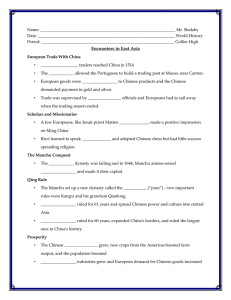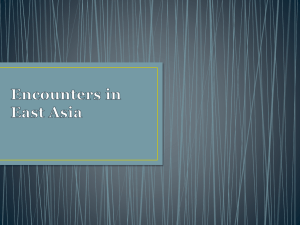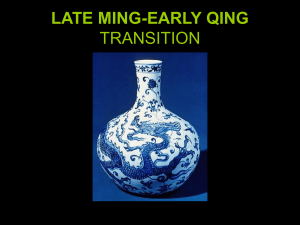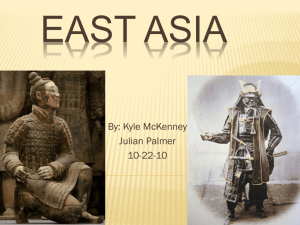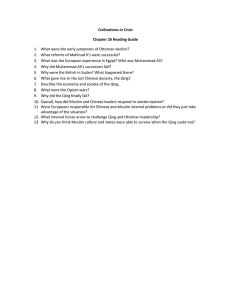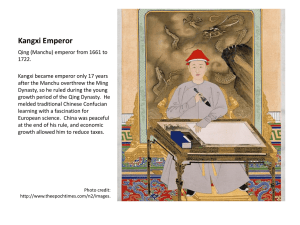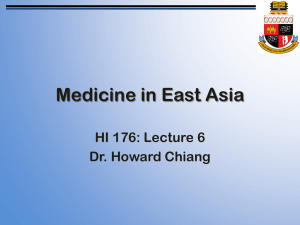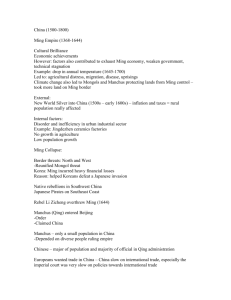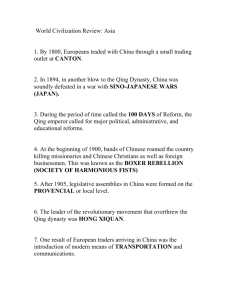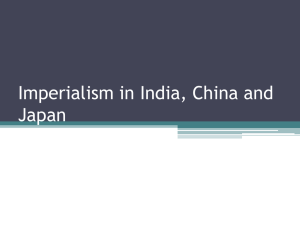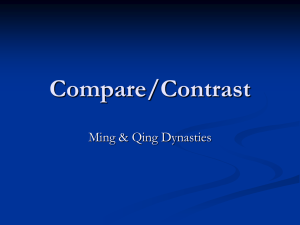Section 4 Questions
advertisement
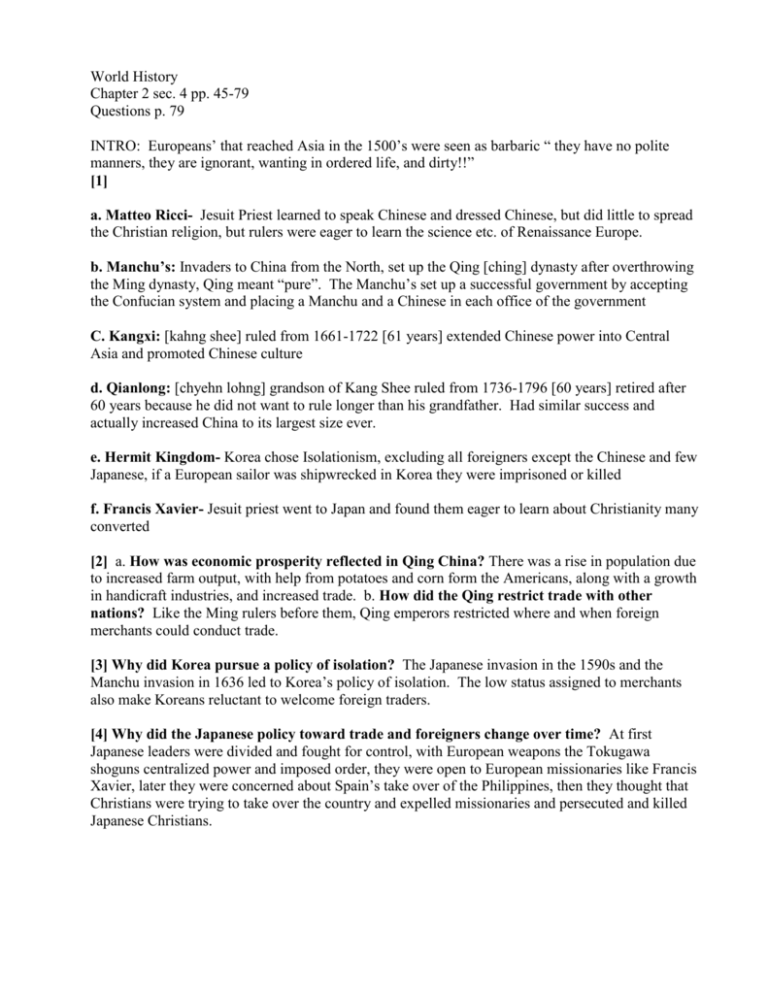
World History Chapter 2 sec. 4 pp. 45-79 Questions p. 79 INTRO: Europeans’ that reached Asia in the 1500’s were seen as barbaric “ they have no polite manners, they are ignorant, wanting in ordered life, and dirty!!” [1] a. Matteo Ricci- Jesuit Priest learned to speak Chinese and dressed Chinese, but did little to spread the Christian religion, but rulers were eager to learn the science etc. of Renaissance Europe. b. Manchu’s: Invaders to China from the North, set up the Qing [ching] dynasty after overthrowing the Ming dynasty, Qing meant “pure”. The Manchu’s set up a successful government by accepting the Confucian system and placing a Manchu and a Chinese in each office of the government C. Kangxi: [kahng shee] ruled from 1661-1722 [61 years] extended Chinese power into Central Asia and promoted Chinese culture d. Qianlong: [chyehn lohng] grandson of Kang Shee ruled from 1736-1796 [60 years] retired after 60 years because he did not want to rule longer than his grandfather. Had similar success and actually increased China to its largest size ever. e. Hermit Kingdom- Korea chose Isolationism, excluding all foreigners except the Chinese and few Japanese, if a European sailor was shipwrecked in Korea they were imprisoned or killed f. Francis Xavier- Jesuit priest went to Japan and found them eager to learn about Christianity many converted [2] a. How was economic prosperity reflected in Qing China? There was a rise in population due to increased farm output, with help from potatoes and corn form the Americans, along with a growth in handicraft industries, and increased trade. b. How did the Qing restrict trade with other nations? Like the Ming rulers before them, Qing emperors restricted where and when foreign merchants could conduct trade. [3] Why did Korea pursue a policy of isolation? The Japanese invasion in the 1590s and the Manchu invasion in 1636 led to Korea’s policy of isolation. The low status assigned to merchants also make Koreans reluctant to welcome foreign traders. [4] Why did the Japanese policy toward trade and foreigners change over time? At first Japanese leaders were divided and fought for control, with European weapons the Tokugawa shoguns centralized power and imposed order, they were open to European missionaries like Francis Xavier, later they were concerned about Spain’s take over of the Philippines, then they thought that Christians were trying to take over the country and expelled missionaries and persecuted and killed Japanese Christians.
